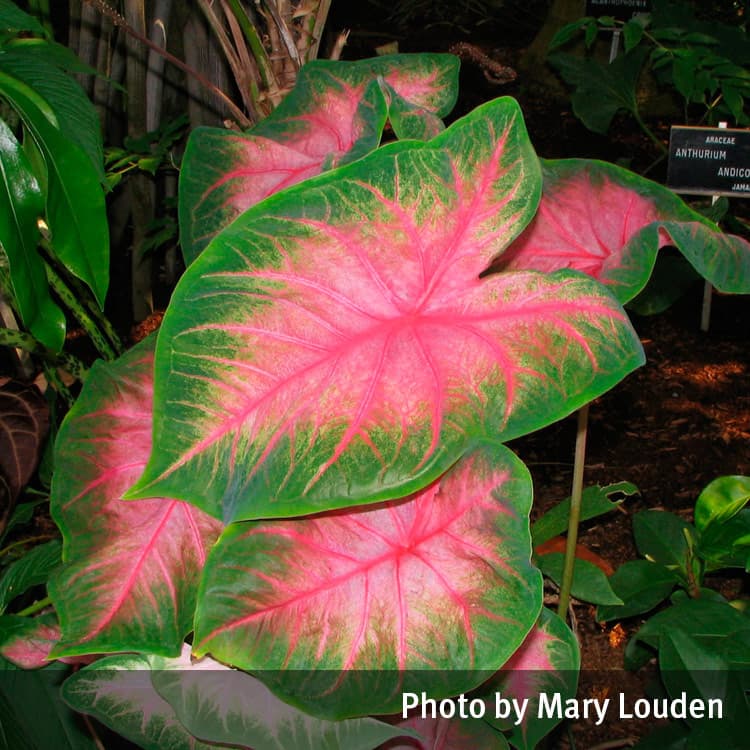Warning
Seek urgent medical attention if lips or tongue become swollen or if there is difficulty breathing or swallowing.
Description
The central spike is packed with tiny florets.
The large, heart-shaped leaves are showy with prominent veins, and are often variegated with red, pink, white or green. The fruit are small, white berries clustered along the spike.
Toxicity
Symptoms
All parts of the plant are toxic, if chewed or swallowed. Symptoms include an intense and painful burning sensation, excessive salivation and swelling of the lips, mouth, tongue and throat, as well as severe gastric irritation. The sap has been known to cause dermatitis, intense itching and burning.
Images

Details
Common name: Angel’s wings
Botanical name: Caladium species, including Caladium bicolor, Caladium x candidum, Caladium x Mrs W.B. Halderman, Caladium humboldtii
Other common names: Angel’s wings, Fancy leaf caladium, Miniature caladium
Family: Araceae
General description: This species is an ornamental house plant sometimes grown in the garden where it dies down in winter.
Flowers: The central spike is packed with tiny florets.
Leaves: The large, heart-shaped leaves are showy with prominent veins, and are often variegated with red, pink, white or green.
Fruit/Berries: The fruit are small, white berries clustered along the spike.
Other: The sap is clear.